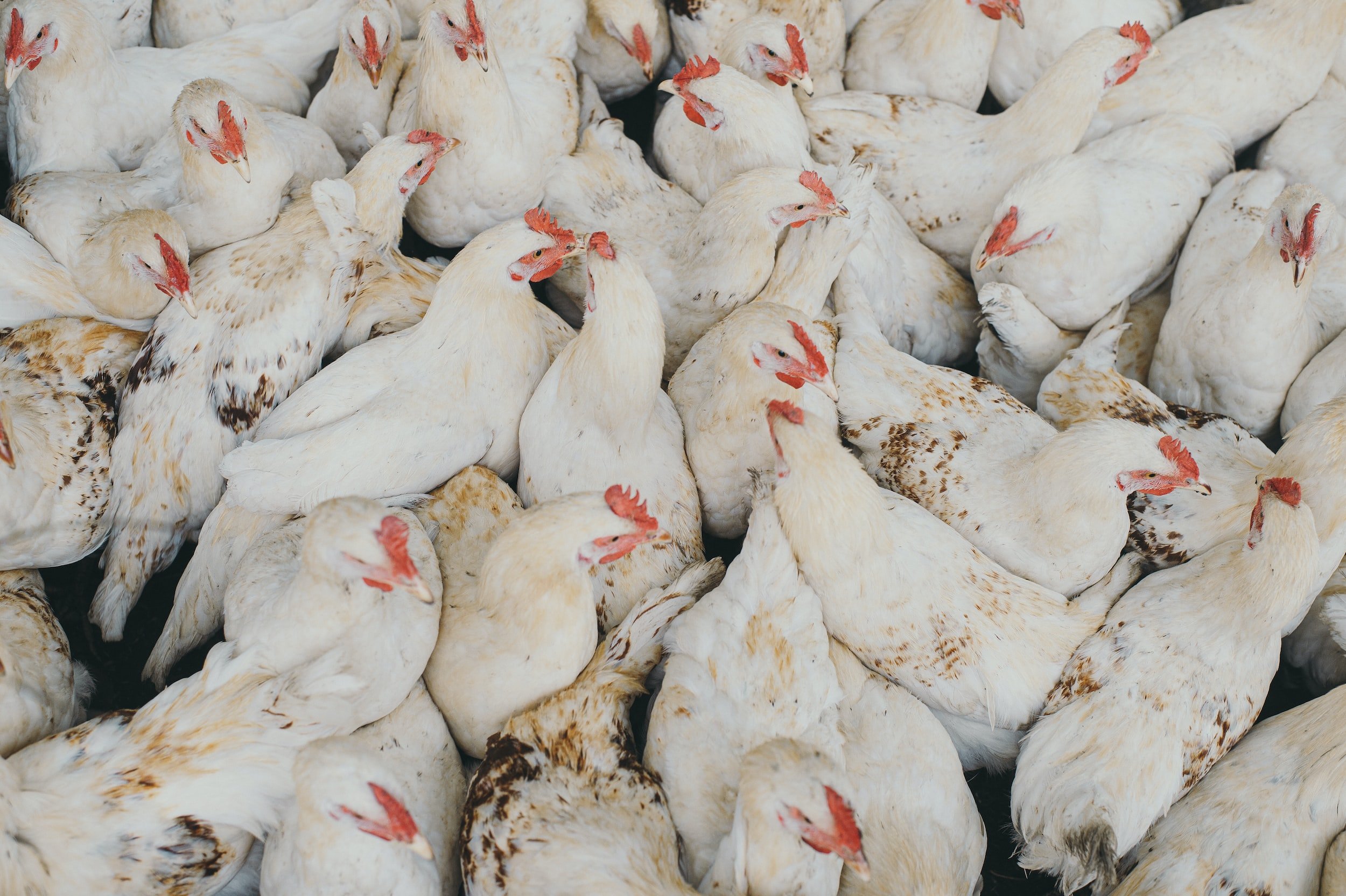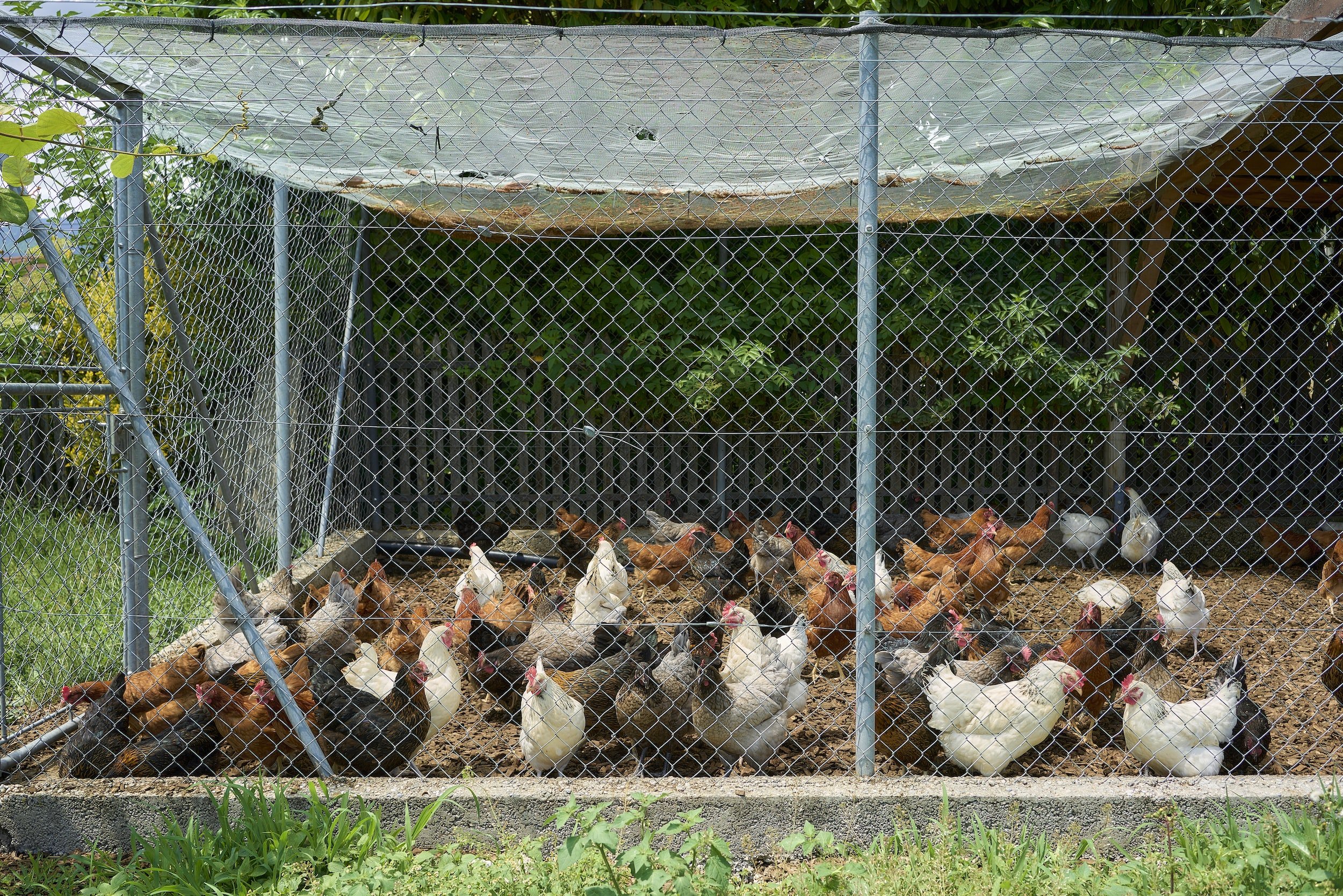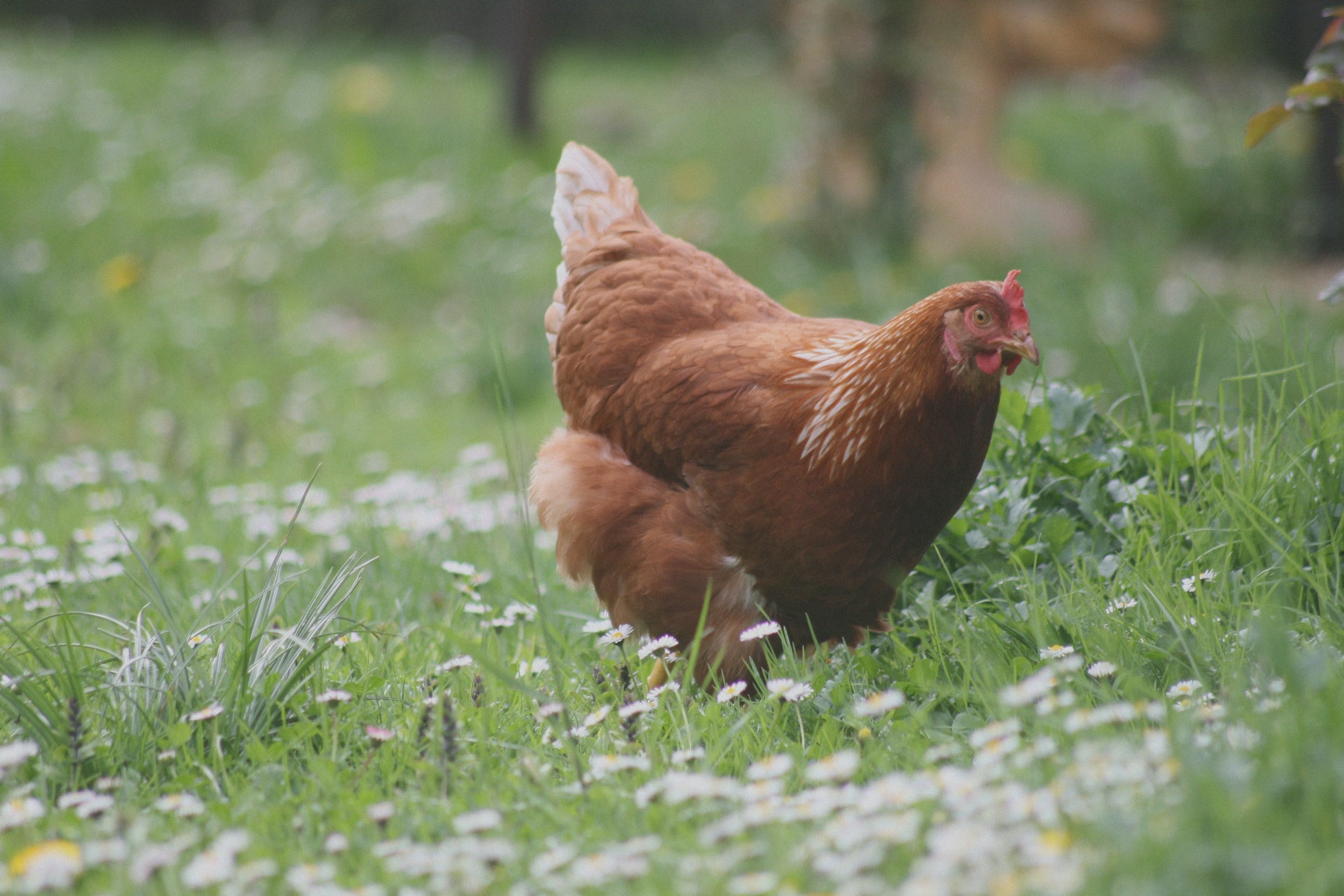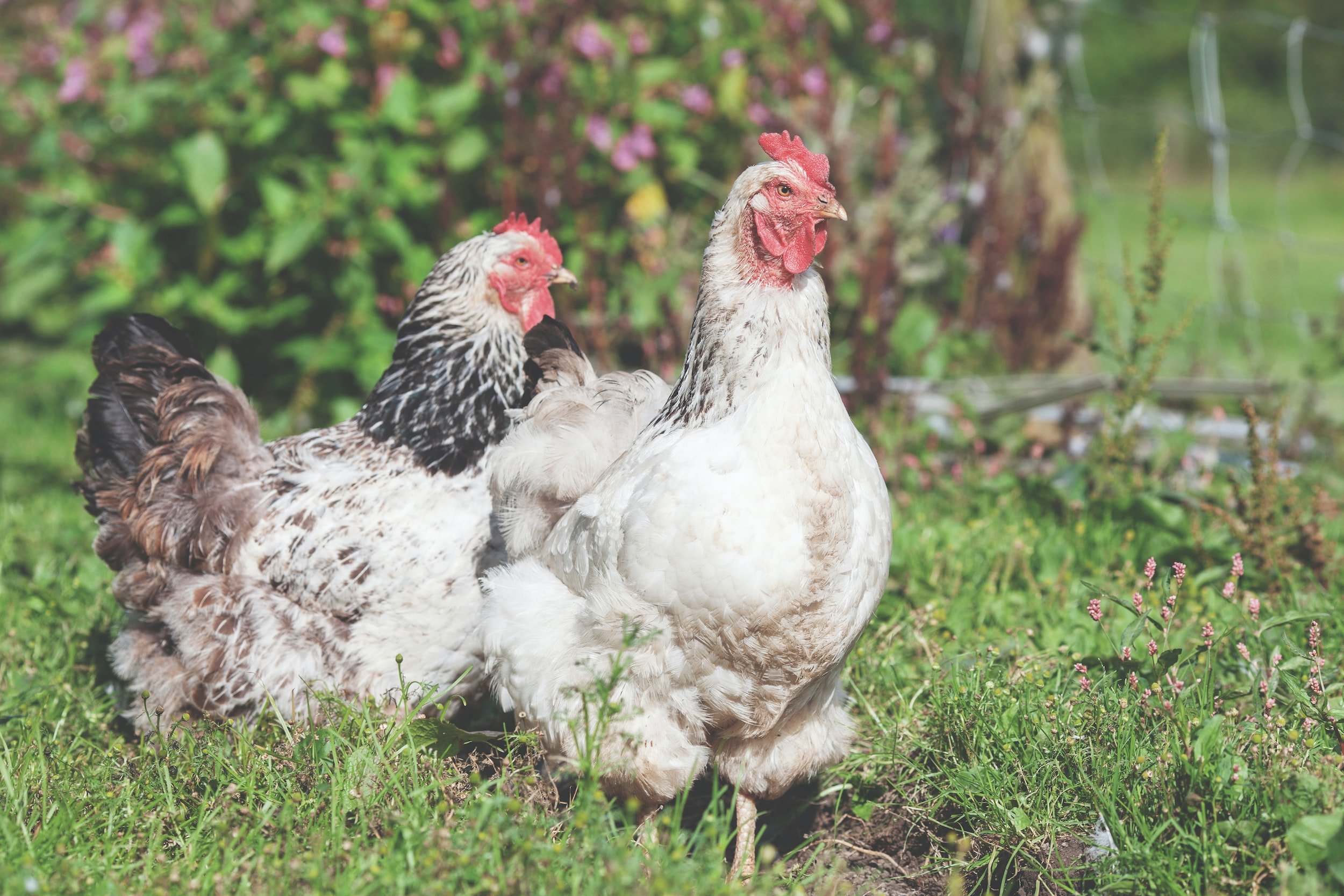Comparing Egg Options: Conventional, Cage-Free, Range-Free and Pasture-raised
When it comes to buying eggs, you've probably noticed there are a ton of options at the grocery store. It's important to understand the differences between these options so you can make an informed decision. Here's a breakdown of the main types of chicken eggs you'll find:
Conventional Eggs
Conventional eggs are the most common type. These come from chickens kept in crowded, confined spaces, often in tiny battery cages. These chickens are usually fed a diet of genetically modified grains and additives.
These conditions can lead to a number of welfare and health concerns for the chickens, such as respiratory problems, eye issues, and skeletal abnormalities. Plus, the crowded conditions increase the risk of disease outbreaks.
Cage-Free Eggs
Cage-free eggs come from chickens that aren't kept in battery cages, but they may still be housed in crowded conditions. The space provided to these chickens can vary in size and quality. Some farms may provide a larger, more enriching environment for the chickens, including access to an outdoor space, while others may have minimal or barren space.
They're fed a GMO grain-based diet and receive antibiotics, hormones and enzymes just as conventionally raised chickens unless it's specified organic.
Range-Free
Range-free eggs come from chickens that have access to an outdoor space. These eggs may have a higher nutrient content due to the chickens' ability to forage and have a varied diet. However, the outdoor space provided to these chickens may still be small or restricted.
They're fed a GMO grain-based diet and receive antibiotics, hormones and enzymes just as conventionally raised chickens unless it's specified organic.
Organic Eggs
Organic eggs come from chickens kept in cage-free or range-free conditions but are fed an organic diet.
They are fed a grain-based diet that is grown without synthetic pesticides, herbicides, additives or fertilizers and are non-GMO. They also aren't administered any antibiotics or growth hormones. This food must be certified as organic by a third party.
These eggs tend to have a higher nutrient content than conventional eggs or non-organic cage-free and range-free as their diet is better than non-organic.
The demand for organic eggs has led to the creation of large-scale organic egg farms, which makes for harsher environments for the chickens and more disease outbreaks due to overcrowding.
Pasture-Raised Eggs
Pasture-raised eggs are often considered to be the highest quality eggs due to the healthier conditions in which the chickens are kept and the quality of their diet.
Pasture-raised eggs are the most humane and environmentally-friendly option. These come from chickens kept on a pasture and given access to an outdoor space. These chickens are able to forage on grass and insects. This varied diet results in eggs with a more flavorful and nutrient-dense yolk.
Pasture-raised eggs may also have a higher nutrient content compared to other types of eggs, including higher levels of vitamins and minerals such as vitamin A, vitamin E, and omega-3 fatty acids.
Understanding the labels and standards for the different types of eggs
Conventional eggs don't have to be labelled or certified in a certain way, so it's up to the farmer or egg producer to decide how the chickens are kept and what they eat.
Cage-free eggs must come from chickens that are not kept in battery cages, but there are no other specific requirements for their housing or diet. The term "cage-free" does not necessarily indicate that the chickens have access to an outdoor space or that their diet is organic or non-GMO.
Range-free eggs must come from chickens that have access to an outdoor space, but there are no other specific requirements for their housing or diet. As with cage-free eggs, the term "range-free" does not necessarily indicate that the chickens are fed an organic or non-GMO diet.
Organic eggs must come from chickens kept in cage-free or range-free conditions and fed an organic diet. The food fed to these chickens must be certified as organic by a third party, and the eggs must be produced according to specific standards for animal welfare and the environment. The USDA National Organic Program (NOP) is responsible for setting and enforcing these standards in the United States.
Pasture-raised eggs must come from chickens that are kept on a pasture and have access to an outdoor space. There are no specific requirements for the size or quality of the outdoor space, and the chickens may be fed a diet that includes non-organic grains in addition to foraging. The American Pastured Poultry Producers Association (APPPA) has developed a voluntary certification program for pasture-raised eggs in the United States.
It is important for consumers to be aware of these labelling and certification processes and to understand that not all labels and claims are created equal. It is always a good idea to do some research and consider supporting egg producers who are transparent about their farming practices and prioritize animal welfare and the environment.
Where to Find Pasture-Raised Eggs?
When shopping for eggs, you may want to consider looking for pasture-raised eggs at local farms or farmers' markets. Not only will you be supporting local businesses, but you'll also be able to ask the farmers about the conditions in which the chickens are kept and their diet. Make sure to ask if they supplement their diet and with what. Is it organic feed or non-organic?
You can also look into the different egg certification programs, such as the American Humane Certified or Animal Welfare Approved programs, which have higher standards for how chickens are treated, and the American Pastured Poultry Producers Association (APPPA).
Conclusion
It's important to do your research and make informed choices about the eggs you purchase. While conventional eggs may be the cheapest option, they come with potential negative effects such as a higher risk of contamination and lower nutrient content.
On the other hand, pasture-raised eggs may cost more, but they come from chickens that are treated better and fed food that is more like what they would eat in the wild. By understanding the differences between the various types of eggs and considering your values and priorities, you can choose the right eggs for you.






